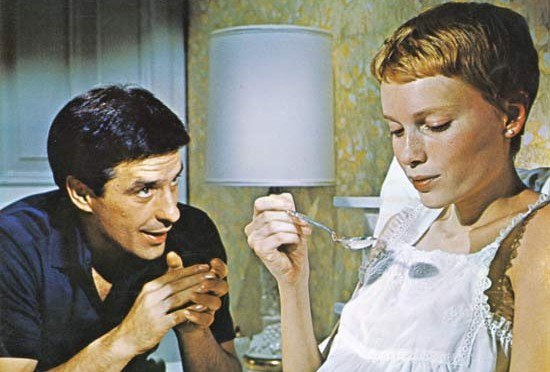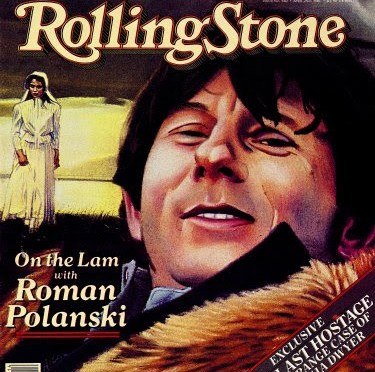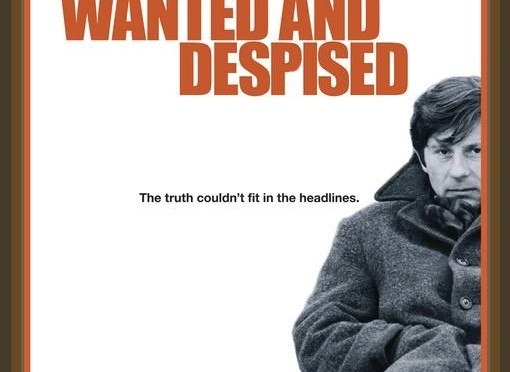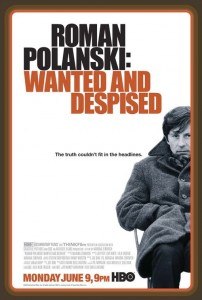 Curiouser and curiouser!
Curiouser and curiouser!
A defense of Applebaum’s defense of Polanski. Doug MacEachern : Polanski, “Patterico” and Applebaum:
Personally, I don’t think Ms. Applebaum wrote a very good column in the first place. And her self-defenses against [Patterico, AKA Patrick] Frey’s increasingly contemptuous attacks were weak. And, for that matter, Frey dug out a legitimate news scoop when he revealed that the Polish official working to foil Polanski’s extradition was, in fact, Applebaum’s husband.
But, still…
All Applebaum had to do to make Frey go away was to not engage him at all. She didn’t need to respond to his blogs. But she did. And, boy, did he make her pay for it. With Frey’s readers urging him on, he turned nearly every word Applebaum wrote to him via email into a sensational “lie.”
Frey claws at his prey for her weak attempts at defending her column.
MacEachern’s thrust is: “Ignore these unpaid bloggers. They may be right, but they’re just so incredibly rude about it.”
A few days before the Polanski arrest Applebaum’s opinion-shaping WaPo colleague Michael Gerson shared his dim view of people whose opinions differ from his own. He wants to Banish the Cyber-Bigots:
User-driven content on the Internet often consists of bullying, conspiracy theories and racial prejudice. The absolute freedom of the medium paradoxically encourages authoritarian impulses to intimidate and silence others. The least responsible contributors see their darkest tendencies legitimated and reinforced, while serious voices are driven away by the general ugliness.
He’s projecting.
Legally restricting such content — apart from prosecuting direct harassment and threats against individuals or incitement to violence — is impossible. In America, the First Amendment protects blanket statements of bigotry. But this does not mean that popular news sites, along with settings such as Facebook and YouTube, are constitutionally required to provide forums for bullies and bigots. As private institutions, they are perfectly free to set rules against racism and hatred. This is not censorship; it is the definition of standards.
More on Applebaum. Can We Still Trust Anne Applebaum? Her Irrational Defense of Polanski, by Ron Radosh:
By now, there have been scores of terrific comments on the Polanski controversy. But perhaps the best single line was offered on it by Jay Leno. “It’s not as if he committed a real crime,” Leno said, “like colorizing a black and white movie.” That comment reveals the mindset of the Hollywood elite, for whom anal rape of a 13-year-old drugged with Quaaludes is something to be forgiven. This is especially true when committed by a celebrated director whose status as a Holocaust survivor offers him lifetime protection from having to pay for his own criminal behavior.
It’s an especially terrific comment if you remember it was Ted Turner, the media’s token non-jew, who got so much grief about colorizing movies.
Her argument reminds me of those African Americans who applauded the jury nullification in the O.J. Simpson case, arguing that African Americans were oppressed for a century and many were lynched, and this was payback and proof that even if guilty, the accused had a right to go free because of the past history of oppression. Did Applebaum see “mitigating circumstances” in the O.J. trial outcome?
Third, she notes Polanski’s age: 76. Evidently the persecutors of the Gulag or the Nazi death camps, if still alive and caught living free for crimes they committed half a century ago, should also go free because of their age. Did she chastise the Israelis for catching Eichmann in Argentina and putting him on trial in Jerusalem? Does she believe that Germany should now release Ivan Demianiuk because the man claims he was wrongly identified, that he was only a guard forced to do what he was asked, and that he is now in his 80’s?
To ask the question is to answer it.
Finally, Applebaum says nothing about the horrible rape and mental and physical injury sustained by an innocent 13-year-old girl. She has young children who, I believe, are now close in age to the victim decades ago. If her daughter were at a party and a famous film director appeared, drugged her, and raped her in a similar fashion, would Applebaum rush to his defense because he had suffered in the Holocaust and made good films? To ask the question is to answer it.
Polanskization raises lots of questions that, if considered honestly, answer themselves.
So, I am more upset that a columnist like Anne Applebaum has somehow lost her senses and her moral compass than that the Hollywood elite — whom we all expect to rally around one of their own — has joined in the ruckus to free Polanski. Does she not realize that these columns hurt her own calls for justice to those who suffered in the Gulag, and her understanding that for certain crimes, there is no statute of limitations? Does she want her readers to take her seriously in the future?
We have come a long way from both morality and seriousness when an intellectual columnist like Anne Applebaum can write in defense of the indefensible. Now if only Polanski had agreed to colorizing his early black and white films. Then, perhaps, the auteurs would not have sprung so readily to his defense.
Radosh’s philo-semitic bias causes him to conclude an article about how a non-auteur sprang to Polanski’s defense by absurdly blaming auteurs.
It’s the same bias that causes Radosh to misinterpret The Conservative Debate Over Glenn Beck, which turns out to be jewish “conservatives” David Frum and David Horowitz arguing, Is Glenn Beck Good for Conservatives? Get it? Well, what these jewish “conservatives” mean by “our side” apparently goes right over Radosh’s head. Here’s Frum’s view of it:
Although flattered by David’s description of me as an “armchair aristocrat” (pretty good for a guy whose ancestors came from the next street down from the Horowitz clan!), I was grieved by David’s core point:
“Our country is under assault by a determined, deceitful and powerful left which will stop at nothing to realize its goals. Facing them, I would rather have Glenn Beck out there fighting for our side than 10,000 David Frums who think that appeasing leftists will make them think well of us.”
I don’t believe that distortion and defamation count as “fighting for our side.” I think they are wrong, period, and also as the [Harvard Law professor Cass] Sunstein episode shows, stupid and counter-productive.
You can follow this tangent of jewish distortion and defamation of non-jews in Is Glenn Beck Good for Conservatives? Horowitz vs. Frum Round Two and Are Sarah Palin and Ann Coulter Good for Conservatives? Horowitz vs. Frum, Round Three.
On another bile-inducing tangent, here’s a long, uncharitable review of Applebaum’s book Gulag:
Gulag, Book Review (Introduction)
Gulag, Book Review (Part I)
Gulag, Book Review (Part II)
Gulag, Book review (Part III)
Gulag, Book Review (Part IV)
Gulag, Book Review (Part V)
By the time the last paragraph has been absorbed, you should have an equitable grasp of both neocon and communist mentality and why the author of Gulag obtained the status of a journalistic deity.
Wintermute gave his evaluation in response to Sailer’s recent essay on Noam Chomsky:
I think his closest analogue is Anne Applebaum, who has relentlessly de-Semitized the gulag to the plaudits of the chattering/ ruling classes.
Here’s an anti-Polanski-sounding non-prosecution. L’affaire Polanski: The people hold court on a pedophile, by Mireille Silcoff, October 03, 2009:
It came in the form of the nearly unvarying opinion of the non-rich and non-famous, the tens of thousands of Internet users having their say in such places as the talkback forums of newspaper websites, as much in Europe as on this side of the Atlantic.
But has anyone seen Bitter Moon lately? I watched it in a series of excruciating nine-minute segments on YouTube last night (every single Polanski movie has been rented out across Montreal) and it felt like watching Polanski raising a triumphant middle finger to those who would dare tell him how to live.
Maybe he saw it at the time as an irresistible and yet low-risk move. It was 1992, sleeping dogs were lying, and Polanski felt free enough to cast himself a look-alike (Peter Coyote) and then have his stand-in engage in sexual watersports, suffocating oral sex and what can only be termed barnyard S&M onscreen with the director’s actual 24-year-old wife, Emmanuelle Seigner. As Coyote prances through a Paris apartment naked but for a pig’s mask, he ejaculates a dozen sleazy variations on the theme of “I just can’t control myself! The passion! The degeneracy! It’s my nature!”
Holy chutzpah, Roman Polanski! Today, there’d be an instant feeding frenzy on the blogosphere.
Silcoff concludes:
In truth, the Julian Schnabels and the Monica Belluccis who signed the Liberate Polanski petitions were only under the same spell that most of us were under. We’d all simply forgotten. Now that forgetting has become impossible, it will be fascinating to see if Roman Polanski will be able to find as many, or indeed any, useful allies.
I believe she was under the same spell, and even most of the people she considers “us”. But silly Silcoff just noted that given the opportunity to finally express our opinion most of the non-rich and non-famous proved we were not under any spell. What’s fascinating to see here is how the spectrum of kosher commentary runs from clueless denials (such as Radosh’s) to cheeky, manipulative attempts to disguise or simply laugh off the glaring jewish component of Polanski’s defense. “It’s my nature!” Indeed.
Brendan O’Neill is the editor of spiked, and a professional opinonator whose opinion here is so confused and equivocal that it could easily be taken as an attempt to be deliberately obfuscatory. It does however contains a few notable nuggets. Refighting the Culture War over Roman Polanski | spiked:
But perhaps the worst aspect of the Polanski affair is the competition of victimhoods. It is testimony to the domination of the victim culture in contemporary society that both Polanski haters and Polanski defenders, both sides in this bizarre re-enactment of the Culture War of the 1960s and its aftermath, have used the language of victimology to make their case. For many American and British commentators this is all about Samantha Gailey [now Geimer], whom they have transformed into the archetypal and eternally symbolic victim of the alleged great evil of our time, Child Abuse. ‘Remember: Polanski raped a child’, says a headline in Salon, in an article that provides sordid, misery-memoir-style details of what Polanski did with his penis to Gailey’s vagina and anus (9). For European observers, by contrast, Polanski’s actions can be explained by his own victimised past, especially during the Holocaust. We have to understand his ‘life tragedies’ and how they moulded him, says one filmmaker (10). Anne Applebaum, the American commentator who spends much of her time in Europe, says Polanski fled America in 1978 because of his ‘understandable fear of irrational punishment. Polanski’s mother died in Auschwitz. His father survived in Mauthausen. He himself survived the Krakow ghetto.’ (11) (Applebaum fails to disclose that she is married to the Polish foreign minister, Radoslaw Sikorski, who is actively campaigning against Polanski’s extradition.)
This spat in victimology confirms that the politics of victimhood, the pursuit of law, politics and morality in the name of respecting and helping victims, dominates debate on both sides of the Atlantic, but in the Anglo-American sphere it is the victim of child abuse that is most sacrosanct, while in Europe it is the victims of the Holocaust who enjoy the greatest, most unquestioned moral authority – to the extent that Polanski’s pretty cowardly fleeing of America in 1978 can be excused as a latent reaction by a tortured man to the emotional horrors of Auschwitz.
L’Affaire Polanski has become a Culture War that dare not speak its name, a pale and dishonest imitation of the debates about values and morality that have emerged at various times over the past 50 years. As a result we are none the wiser about the legal usefulness of 30-year-old arrest warrants or contemporary extradition laws, as desperate political observers have instead turned Polanski into either a ventriloquist’s dummy or a voodoo doll for the purposes of letting off some cheap moral steam.
It is understandably difficult to acknowledge that out of either fear, respect, or love of the jewish power that has waxed over the last 50 years, most people, especially pundits whose livelihood depends on their not opposing that power, don’t want to say anything that confronts it. That’s why so many people speak only in vague “culture war” terms, or absurdly scapegoat whole countries, or explain what’s happening by way of membership in nebulous groups like “liberal” or “elite” or “Hollywood” when there’s a big fat jewish elephant in the room. Euphemism is one safe way to pretend you’re being insightful about Polanskization even as you babble nonsense about it.
Another way is to ignore the whole thing. In ‘ET,’ ‘Insider’ and ‘Access Hollywood’ steer clear of Polanski | Company Town | Los Angeles Times, by Joe Flint takes note:
But anyone looking to learn about the fate of Roman Polanski by tuning in to “Access Hollywood,” Entertainment Tonight” or “The Insider” will be sadly disappointed. While cable news, particularly CNN, has been micro-analyzing the arrest and the entertainment industry’s reaction, the three shows that claim to be the insider’s guide to all things Hollywood have for the most part steered clear of the controversy.
That was as of September 30. Once the semitically correct way of seeing Polanskization gets worked out online we can be sure they’ll be all over the story.
Hollywood split on Polanski:
Not everyone in Hollywood supports embattled director Roman Polanski.
It’s a big mystery at CNN.
Here’s a Christian perspective that came out fairly early on. Georgetown/On Faith: Father Polanski Would Go to Jail – Thomas J. Reese, September 28, 2009:
The world has truly changed. Entertainment is the new religion with sex, violence and money the new Trinity. The directors and stars are worshiped and quickly forgiven for any infraction as long as the PR agent is a skilled as a saintly confessor. Entertainment, not religion, is the new opiate of the people and we don’t want our supply disturbed.
Is there a double standard here? You bet.
I’m wondering. Did anybody in or out of “entertainment” stand up for Mel Gibson? Was it with anything like the fervor of the jews who wanted him black-balled, or the jews who sprang to Polanski’s defense? Will Father Reese ever discuss the jewish supremacism implied by this double standard? I think he’d rather keep getting published by Newsweek and WaPo.
Look. Here’s a direct comparison of Gibson and Polanski that still dances around the reason they’re treated differently. Polanski sex case arrest provokes backlash against his supporters in Hollywood, by Paul Harris, 4 October 2009:
“Hollywood people really don’t see the world in the same way as average people… that is why there is a backlash,” said Mike Levine, a Hollywood PR expert.
It is also speaks to a certain type of Hollywood culture which appears to insist that its top stars are in some ways elevated above the law and should be treated differently to ordinary members of the public.
If Polanski was just an ordinary man instead of a world-famous film director, the bare facts of his case would be likely to elicit little sympathy – especially from the world famous. Hollywood stars seem to be arguing, in some ways, that Polanski’s talent should allow him some sort of free pass for his past behaviour. “Hollywood… looks at the Polanski case and says, ‘You have to make allowances for genius’,” said Gallagher.
Hollywood’s elite also functions as a kind of club and Polanski, seen by the elite as a great European auteur director, is a firm member. That requires a certain degree of success but also a great deal of ideological conformity. It is a cliche that Hollywood is uniformly liberal in its politics, but one with more than a dash of truth in it. It is certainly interesting to see the reaction to Polanski’s case and compare it with the reaction to Mel Gibson, when he was caught mouthing drunken anti-Semitic abuse.
Gibson, a rare conservative in Hollywood, was brutally condemned by his fellow stars and sent into virtual career exile. Polanski, whose crime is far more serious, has seen a vast outpouring of sympathy. Being a member of the Hollywood club certainly seems to have its privileges.
“The difference between the reaction to Gibson and the reaction to Polanski has been just huge. Huge!” said celebrity interviewer Gayl Murphy. “That says a lot about what Hollywood thinks is important to them.”
Gibson is arguably a bigger star and a bigger money-maker than Polanski. Gibson was not above the law, and nobody but himself, when he was drunk, ever argued he was. The question is, why is he not a member of the same privileged Hollywood club as Polanski? If Gibson had made a drunken rant about the French or the Europeans or liberals, would he have been treated as he was? To ask the question is to answer it. It is jewish favor/disfavor that explains the difference.
But, more importantly, it has also exposed a huge fault line between what Hollywood thinks of itself and what Americans think of Hollywood. No longer is it just the right wing of America lambasting “Hollywood liberals” for their permissive and overly Democratic ways. It is Democrats too. And feminists. And conservatives. Polanski seems to have united the different strands of America in a way that few other things have.
Polanskization united otherwise hostile feminists, liberals, and conservatives, exposing a huge fault line between them and other feminists, liberals, and conservatives who sympathized with Polanski because he’s jewish.
UPDATE 5 Oct 2009: In A British court’s remarkable involvement with Roman Polanski, Lawrence Auster writes:
British leftie Nick Cohen, writing in the Observer/Guardian, sides against Polanski and his supporters.
As we’ll see below, this is delusionary, and it’s telling that Auster wants his readers to see Cohen’s article this way. There are articles that actually do take sides against Polanski and his supporters. Cohen’s isn’t one of them. In contrast see Ron Radosh’s essay, or the article Auster derides in The sub standard world of conservative writing.
Auster continues:
And he says that the country most guilty of having taken Polanski’s part is not France, but England
This is an accurate summary of Cohen’s article, assuming Auster meant “Polanski’s side” rather than “Polanski’s part”. Auster sees this “guilt” so clearly because it resonates with his own view of Britain as the “Dead Island“. Like Cohen, he’s willing to scapegoat a whole country collectively rather than discuss the individuals who actually came to Polanski’s defense and why.
Note Nick Cohen’s acid tone and who he directs it at. Why Roman Polanski just loves the English courts, 4 October 2009:
With bungling financiers and a brooding and bewildered prime minister, the British do not have much to feel superior about. Yet in these dark days when all sources of consolation seem gone, at least the Polanski affair allows us to enjoy our traditional pleasure of patronising the French.
Poor France. What is there left to say about that unfortunate country?
Inevitably, the task of rewarding Polanski fell to London judges, who have made the slogan “English justice” an oxymoron the world over.
Like Russian oligarchs and Saudi Arabian petro-billionaires, Polanski wanted to sue in plaintiff-friendly England, rather than in France, where his citizenship protected him from extradition.
But London is not known as “a town called Sue” for nothing, and in a ruling which is still shocking to read, the Law Lords protected Polanski from arrest by allowing him to testify via a video link from France as they upheld the reputations of sexual predators.
Of all the asinine interventions made by the English establishment in the Polanski affair, this was the worst.
Tories claim that Britain has a “liberal judiciary” but in two respects our judges are reactionaries. They will not stand up for freedom of expression, and they will not defend the rights of women or, as the Polanski case shows, the rights of girls either.
The thrust of Cohen’s article is that, rather than the unfortunate French, his readers should direct their attention and their anger toward “the British”, “London judges”, “English justice”, “the English establishment”, and the “liberal judiciary”. Why? Because in 2002 they “rewarded” Polanski by permitting him to testify via video link in a libel suit he brought against Conde-Nast. Cohen argues that this is what his reader’s should really be upset about.
Contra Auster, Cohen makes no mention of the people who have come to Polanski’s support today, and if anything is redirecting blame away from them. Cohen could have written about the very recent, very shrill, very jewish attempts to subvert the justice system for Polanski’s benefit. Instead he wrote to blame the British and their justice system.
What’s really remarkable about Cohen’s argument is how absurd it is. The reason Polanski wanted to testify via video link is because he feared the liberal British justice system would arrest and extradict him. Cohen twists this into “the Law lords protected Polanski from arrest”, which of course they didn’t. However bad the British system may be, in that regard it’s better than France’s.
To sum it up then, Cohen uses a bogus argument to misdirect blame from the French, whom others have tried to blame and who don’t deserve it, to the British, who don’t deserve it either. The problem is, we know exactly who sprang to Polanski’s defense, writing hysterical op-eds and signing an insane petition demanding his release. We know which government officials sprang to join them. We can also see who is trying to apologize and distract attention from this. It’s far past obvious that the explanation why has more to do with jewishness than anything else.
 Mangan’s The One-Man NAACP of the Right links Pat Hannagan’s Purging the Faux White Right. Mangan and Hannagan dismantle Lawrence Auster’s latest attempt to pathologize “the anti-semites” who see jewish ethnocentrism in the defense of Polanski and attack on Gibson.
Mangan’s The One-Man NAACP of the Right links Pat Hannagan’s Purging the Faux White Right. Mangan and Hannagan dismantle Lawrence Auster’s latest attempt to pathologize “the anti-semites” who see jewish ethnocentrism in the defense of Polanski and attack on Gibson.







